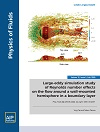
PHYSICS OF FLUIDS
Scope & Guideline
Elevating Understanding in the World of Fluids
Introduction
Aims and Scopes
- Fluid Dynamics and Mechanics:
The core focus of the journal lies in the fundamental principles of fluid dynamics and mechanics, encompassing the study of flow behavior, turbulence, and the interaction of fluids with solid boundaries. - Multiphase and Complex Fluids:
Research on multiphase flows, including interactions between different fluid phases (gas, liquid, solid) and the effects of complex fluid properties, such as non-Newtonian behavior and viscoelasticity. - Computational Fluid Dynamics (CFD) Techniques:
Significant emphasis on the development and application of advanced computational techniques, including numerical simulations, lattice Boltzmann methods, and machine learning approaches for fluid dynamics problems. - Experimental Fluid Dynamics:
The journal highlights experimental studies that validate theoretical models and simulations, exploring real-world fluid phenomena in controlled environments. - Applications in Engineering and Environmental Sciences:
Research that addresses practical applications of fluid dynamics in engineering fields, including aerospace, biomedical, and environmental contexts, aiming to solve real-world challenges. - Interdisciplinary Approaches:
Encourages studies that bridge fluid dynamics with other scientific disciplines such as biology, materials science, and geophysics, enhancing the understanding of complex fluid interactions.
Trending and Emerging
- Machine Learning and Data-Driven Approaches:
An increasing number of studies are integrating machine learning techniques to enhance fluid dynamics modeling and simulations, demonstrating the potential for improved predictive capabilities and optimization. - Fluid-Structure Interaction:
Research exploring the interplay between fluid dynamics and structural mechanics is gaining traction, particularly in applications such as biomedical devices and aerospace engineering. - Thermal and Non-Newtonian Fluid Dynamics:
There is a growing interest in the dynamics of thermal fluids and non-Newtonian fluids, particularly in contexts involving energy transfer, phase changes, and complex rheological behaviors. - Environmental Fluid Dynamics:
Emerging themes focus on environmental applications, particularly in relation to climate change effects, fluid dynamics in natural systems, and pollution dispersion modeling. - Cavitation and Bubble Dynamics:
Research into cavitation phenomena and bubble dynamics is on the rise, driven by applications in various engineering fields, including propulsion and energy generation. - Active Flow Control Techniques:
Studies on active flow control methods, such as plasma actuators and synthetic jets, are trending, reflecting the need for enhanced performance in aerodynamic applications.
Declining or Waning
- Traditional Fluid Mechanics:
Research focusing solely on traditional fluid mechanics principles without integrating modern computational or experimental techniques has seen a downturn, as the field evolves towards more complex and interdisciplinary studies. - Static Fluid Studies:
Papers centered on static fluid behaviors, such as basic hydrostatics or simple laminar flows, are becoming less common as the community shifts towards dynamic, turbulent, and multiphase flow investigations. - Simplistic Modeling Approaches:
There is a noticeable decrease in the publication of studies employing overly simplistic models that do not account for the complexities of real fluid behavior, as the field increasingly values more sophisticated modeling techniques. - Single-Phase Flow Studies:
Research focusing exclusively on single-phase flows is diminishing, with a greater emphasis now placed on multiphase interactions and their complexities in various applications.
Similar Journals
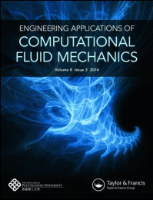
Engineering Applications of Computational Fluid Mechanics
Exploring the Frontiers of Computational Fluid MechanicsEngineering Applications of Computational Fluid Mechanics is an esteemed journal published by Taylor & Francis Ltd that serves as a vital resource for researchers, professionals, and students in the field of fluid mechanics and its computational applications. With an ISSN of 1994-2060 and an E-ISSN of 1997-003X, this journal has established its reputation through its rigorous peer-review process and commitment to Open Access since 2015, facilitating widespread dissemination of cutting-edge research. Based in the United Kingdom, the journal is indexed in leading databases and has achieved a significant impact in its categories, ranking in the top quartile (Q1) for both Computer Science (miscellaneous) and Modeling and Simulation as of 2023. Notably, its Scopus rankings place it in the top 4% of Mathematics/modeling and simulation, highlighting its importance in advancing knowledge and innovation within the discipline. The journal invites contributions that explore both theoretical and practical aspects of computational fluid dynamics, fostering collaboration and intellectual growth within the community.

Computational Particle Mechanics
Fostering Interdisciplinary Insights in Computational ScienceComputational Particle Mechanics, published by SPRINGER INTERNATIONAL PUBLISHING AG, is a leading journal dedicated to advancing knowledge in the interdisciplinary fields of computational mechanics, civil engineering, and fluid dynamics. With an impressive impact factor reflecting its high-quality research publications, this journal maintains a strong presence in the academic community with a Q1 ranking in categories such as Civil and Structural Engineering, Computational Mechanics, and Numerical Analysis as per the latest 2023 evaluations. Researchers and professionals benefit from the journal's commitment to open-access options, promoting wider dissemination of groundbreaking studies. Operating under the Swiss publishing house since 2014, Computational Particle Mechanics aims to foster innovation through the exploration of particle-based methods and simulations, making significant contributions to methodologies within computational mathematics and modeling. As the journal continues to evolve until its converged years end in 2024, it stands as a vital resource for those looking to enhance their expertise in dynamic modeling and simulation techniques.
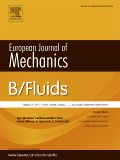
EUROPEAN JOURNAL OF MECHANICS B-FLUIDS
Pioneering Research in Fluid DynamicsThe EUROPEAN JOURNAL OF MECHANICS B-FLUIDS, published by Elsevier, is a prominent journal in the field of fluid mechanics, addressing the theoretical and experimental aspects of fluid behavior. Since its inception in 1990, this journal has consistently fostered a robust academic dialogue, maintaining a significant impact evidenced by its Q2 ranking in both Mathematical Physics and Physics and Astronomy categories as of 2023, placing it among the top publications in these disciplines. Researchers and professionals focusing on fluid dynamics will find a wealth of knowledge in its articles, which span broad topics pertinent to real-world applications as well as fundamental theories. While the journal is not open access, it offers critical insights that shape ongoing studies in fluid mechanics, making it an invaluable resource for anyone looking to deepen their understanding of the field. Located in the innovative environment of Amsterdam, Netherlands, the journal serves as a nexus for cutting-edge research and collaboration globally.

FDMP-Fluid Dynamics & Materials Processing
Fostering Collaboration for a Dynamic Future in MaterialsFDMP-Fluid Dynamics & Materials Processing, published by TECH SCIENCE PRESS, stands as a significant contribution to the field of materials science, specifically focusing on the intricate relationships between fluid dynamics and material processing. With an ISSN of 1555-256X and an E-ISSN of 1555-2578, this journal offers an open-access platform where researchers can disseminate their work broadly, promoting collaboration and innovation among professionals and students alike. Established in 2007 and continuously evolving through to 2024, the journal is classified in the Q4 category of materials science, ranking at #347 out of 463 in the Scopus database, signifying its niche yet crucial role in the academic community. By focusing on the dynamic interplay between fluid behavior and material properties, FDMP addresses contemporary challenges and advances in material processing techniques. The journal plays a pivotal role for academics and industry professionals seeking to push the boundaries of knowledge and application in materials science.
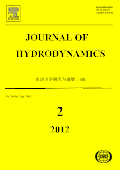
Journal of Hydrodynamics
Shaping the Future of Mechanical Engineering and HydrodynamicsWelcome to the Journal of Hydrodynamics, a premier academic journal dedicated to pioneering research in the fields of Condensed Matter Physics, Mechanical Engineering, Mechanics of Materials, and Modeling and Simulation. Published by Springer, this esteemed journal has been a vital resource since its inception in 1990 and boasts a notable Q1 ranking across its relevant categories, underscoring its importance in advancing knowledge and innovation. With a robust Scopus ranking reflecting its impact—such as being in the 82nd percentile in Mathematics: Modeling and Simulation and the 75th percentile in various engineering disciplines—the journal serves as a critical platform for researchers, professionals, and students. While not currently an open-access publication, the Journal of Hydrodynamics remains committed to fostering scholarly dialogue and disseminating high-quality research that shapes the future of its field. Our mission is to provide a comprehensive forum for the discussion of theoretical and applied hydrodynamics, potentially influencing both academic inquiry and practical applications worldwide.

ATOMIZATION AND SPRAYS
Transforming Knowledge into Practical SolutionsATOMIZATION AND SPRAYS, published by BEGELL HOUSE INC, stands at the forefront of research in the dynamic field of chemical engineering, particularly focusing on the intricate processes of atomization and the mechanics of droplet dynamics. Established in 1996, this prestigious journal aims to disseminate innovative findings and methodologies that drive advancements in applications ranging from spray technologies in industrial processes to environmental technology and energy conversion systems. With a current Impact Factor that reflects its significance within the community—ranked in the Q3 quartile—it serves as a comprehensive resource for researchers, professionals, and students eager to deepen their understanding of fluid mechanics and spray applications. Though not an open-access publication, it provides critical insights and a platform for scholarly communication and exchange in its converged years, fostering collaboration and innovation within the domain.
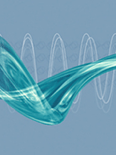
Annual Review of Fluid Mechanics
Elevating Understanding in Fluid DynamicsThe Annual Review of Fluid Mechanics, published by Annual Reviews, is a premier journal in the field of fluid mechanics, dedicated to advancing our understanding of fluid behavior through comprehensive and critical reviews of contemporary research. With an impressive impact factor that reflects its stature—ranking Q1 in Condensed Matter Physics and positioned 4th out of 434 in Scopus’s Physics and Astronomy category—it stands as a vital resource for researchers, professionals, and students alike. Since its inception in 1970, the journal has provided vital insights and synthesized knowledge that drive innovations and applications across various scientific disciplines. Although it does not offer open access, the journal ensures rigorous editorial standards and captivating content that contributes meaningfully to the academic discourse in fluid dynamics. Published annually, the Annual Review of Fluid Mechanics continues to be a cornerstone for anyone interested in the complexities of fluid movement and its implications in both theoretical and practical contexts.

Fluid Dynamics
Driving innovation in fluid dynamics research.Fluid Dynamics is a distinguished journal that has been at the forefront of research in the field of fluid flow and transfer processes since its inception in 1966. Published by MAIK NAUKA/INTERPERIODICA/SPRINGER, this journal serves as a valuable platform for engineers, scientists, and researchers dedicated to advancing the understanding of mechanical and fluid dynamic phenomena. With a Q3 ranking in key categories such as Fluid Flow and Transfer Processes, Mechanical Engineering, and Physics and Astronomy, Fluid Dynamics holds a significant position in the academic community, attracting submissions that push the boundaries of knowledge and application. Although it does not currently offer open access options, the journal is recognized for its robust editorial standards and impactful contributions to the field, making it essential reading for anyone involved in fluid dynamics research. Given its consistent publication through to 2024, Fluid Dynamics continues to inspire innovation and collaboration in an ever-evolving scientific landscape.
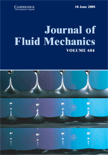
JOURNAL OF FLUID MECHANICS
Driving excellence in fluid mechanics research.JOURNAL OF FLUID MECHANICS, published by Cambridge University Press, is a premier international journal recognized for its significant contributions to the field of fluid dynamics. With an esteemed impact factor that places it in the Q1 category across multiple disciplines, including Applied Mathematics, Condensed Matter Physics, Mechanical Engineering, and Mechanics of Materials, this journal serves as a vital resource for researchers and practitioners alike. Established in 1956, it provides a platform for innovative and high-quality research articles that advance the understanding of fluid mechanics phenomena. The journal's rankings underscore its prestige, with Scopus recognizing it among the top journals in its category. Although it currently does not offer open access, the journal remains accessible to educational institutions and professionals in the United Kingdom and beyond. By addressing critical and emerging topics in fluid mechanics, JOURNAL OF FLUID MECHANICS is essential for those striving to push the boundaries of knowledge and application in this dynamic field.

Journal of Mathematical Fluid Mechanics
Unraveling the Complexities of Fluid Motion Through Mathematical InsightThe Journal of Mathematical Fluid Mechanics, published by SPRINGER BASEL AG, is a prestigious academic journal dedicated to the study of fluid dynamics through the lens of mathematics. With its ISSN 1422-6928 and E-ISSN 1422-6952, this journal has firmly established itself in the academic community since its inception in 2004, converging knowledge across various mathematical disciplines until 2024. Recognized in the top Q1 quartile rankings for Applied Mathematics, Computational Mathematics, Condensed Matter Physics, and Mathematical Physics as of 2023, it reflects a strong commitment to high-quality research and innovation. The journal features a variety of research articles, reviews, and theoretical frameworks, serving as an essential resource for researchers, professionals, and students eager to explore the mathematical principles underlying fluid mechanics. While it does not offer open access, the impact of its contributions resonates within interdisciplinary fields, advancing both theoretical insights and practical applications.